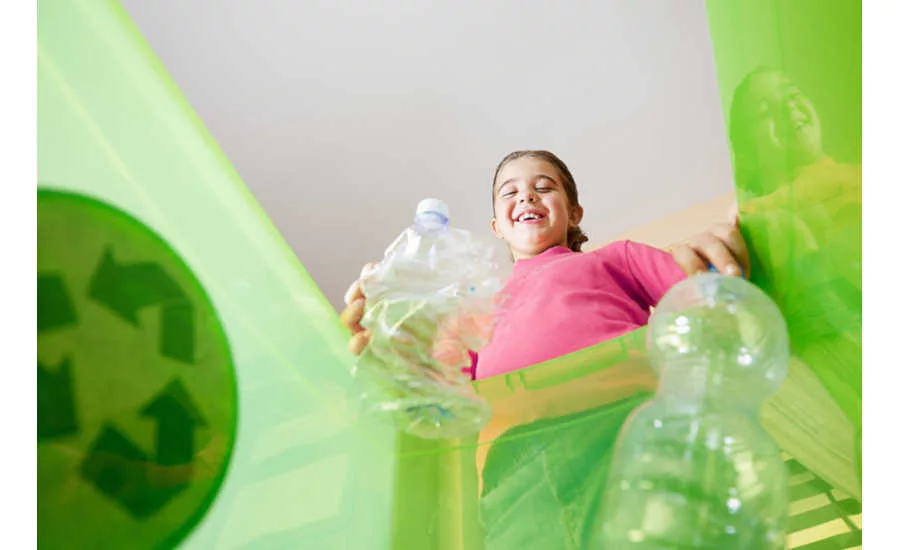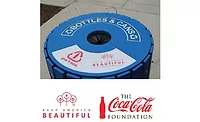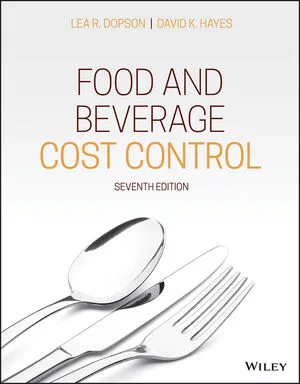IBWA highlights importance of recycling this Earth Day
Bottled water packaging accounts for 55% of collected PET plastic in curbside systems

As the country observes Earth Day, the International Bottled Water Association (IBWA), Alexandria, Va., is encouraging the public to take action to reduce waste and litter by stepping up their commitment to always recycle all recyclable consumer packaging.
This year’s Earth Day theme is “climate action,” and IBWA would like to remind people that the simple act of recycling saves energy and greenhouse gases, which are harmful to the earth’s atmosphere. Making new water bottles from recycled plastic (rPET) uses 84 percent less energy to manufacture than those made from virgin material, it says.
We can all have a positive impact on the environment by taking time to ensure we always properly recycle all food and drink packaging. This is especially important now as most of us have stocked up on these products because we are spending more time at home, it adds.
When consumers place recyclable packing into their recycling bins, they are sending back material that can be used to make new products or packaging.
“Recycled plastic is in high demand as the bottled water industry continues to reduce its environmental footprint by using more recycled PET (rPET) in product packaging,” said Jill Culora, IBWA vice president of communications, in a statement. “The more companies that use rPET, the less virgin plastic is needed in the world.”
Bottled water containers are 100 percent recyclable, including the caps. PET plastic can be recycled over and over again — either as new bottles or other applications, such as other food and non-food containers, fiber for clothing or carpeting, and more, IBWA states.
Bottled water containers make up approximately 55 percent (by count) of all PET plastic collected in curbside systems throughout the United States, according to the association.
A report (“Life Cycle Impacts of Plastic Packaging Compared to Substitutes in the United States and Canada”) from the American Chemistry Council (ACC) looked at the overall impact of plastics on the environment compared with other materials and concluded that, when comparing materials throughout the entire life cycle of a package, plastics leave a much smaller environmental footprint than alternatives, the report states. Perhaps the most significant finding from the ACC report is that alternatives to plastic beverage containers would produce about 60 percent more greenhouse gas emissions.
“While we’re currently spending so much more time at home, it’s important to be thoughtful of how we manage recyclable packaging such as plastic bottled water containers and other recyclable products,” Culora said. “If you’re already a recycling enthusiast, it’s important to keep up your good recycling habits — and if recycling isn’t a habit, now is an excellent time to learn why we all need to recycle and put your newfound knowledge to work by placing all recyclables in the bin.”
IBWA has been active in helping to improve access to curbside recycling through its involvement with organizations such as Keep America Beautiful and The Recycling Partnership, with a goal of making a measurable impact on recycling in the United States.
The bottled water industry is always looking for ways to strengthen existing recycling programs and help to expand recycling efforts further.
“IBWA encourages all consumers to make healthy hydration a part of their lifestyle, to choose bottled water as their preferred packaged beverage, and to always recycle empty containers,” Culora said. “The bottled water industry has been committed to making a more sustainable product packaging to help the environment. If everyone does their part, together we can go a long way in protecting the long-term health of our planet.”
Looking for a reprint of this article?
From high-res PDFs to custom plaques, order your copy today!







